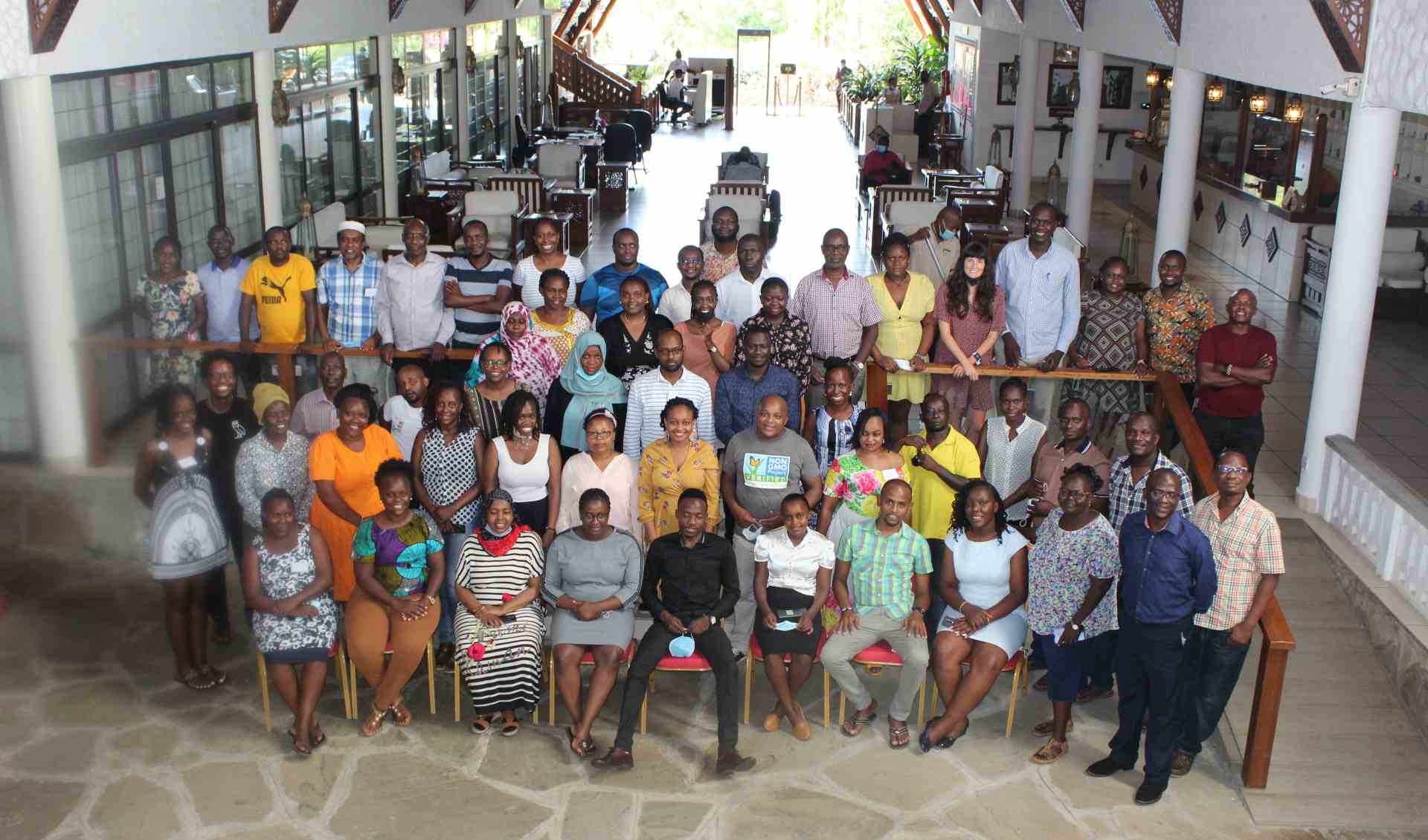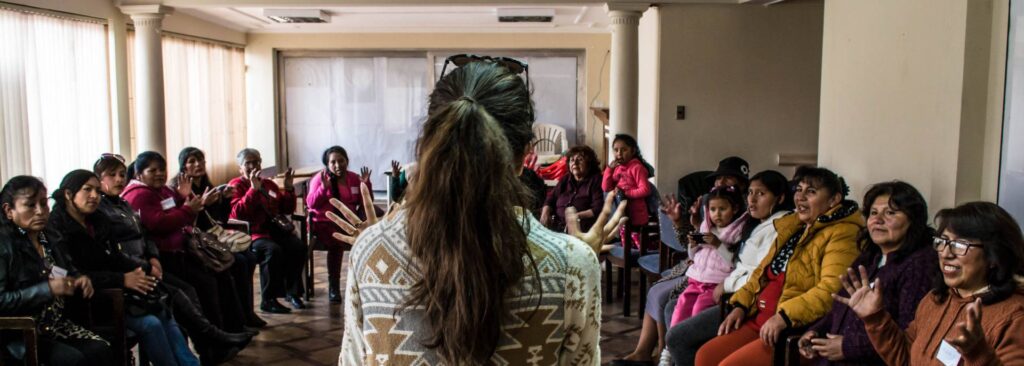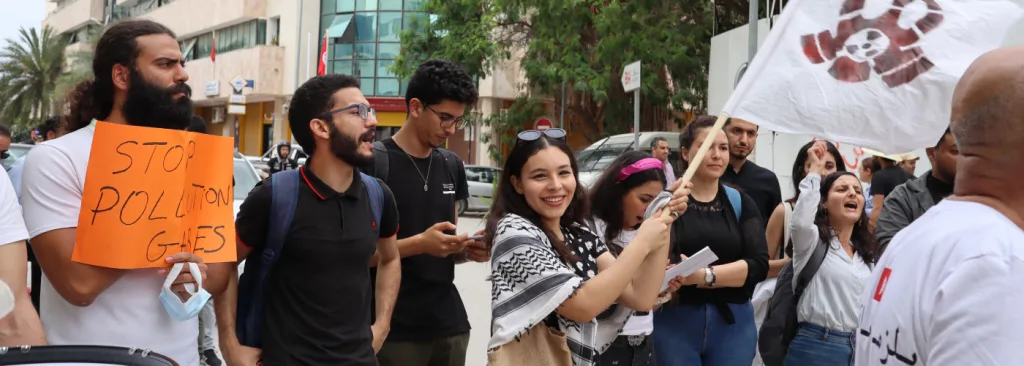The IPCC report published last week once again shows the urgent need for swift and effective action to counter the climate crisis. This crisis is clearly a political, social and ethical challenge, rather than a purely environmental one. Also, there is no doubt that climate change is affecting those least responsible for it the most.
That’s why at the start of 2021, we formed a new alliance between global and “Southern” based NGOs, CSOs and local partners. From diverse backgrounds, they include conservation groups and civil society actors representing women, youth, Indigenous people, the urban poor, digital activists, and others. Together, we are working to tackle the crisis in a broad “bottom up” manor because it is through this approach that can achieve real structural change.
So how does this work in practice? The Voices for Just Climate Action program aims to ensure that by 2025, local civil society and underrepresented groups will have taken on a central role as creators, facilitators and advocates of innovative climate solutions. Their inclusion is crucial for effective and lasting climate responses.
First year of Voices for Just Climate Action
Let’s look back at what the alliance managed to do in a difficult year dominated by the Covid-19 pandemic and all that came with it. What have we achieved? How did we do in terms of setting up structures and processes? And what do we take forward to build an even stronger partnership and program in 2022?
In 2021 we built an effective and well-coordinated operational alliance and undertook baseline studies in each country (and globally) on civil society participation and capacity to co-create locally relevant solutions. We also developed localized Theories of Change with our 100+ contracted partners to make sure the program is rooted in local realities. Specifically, we demonstrated “thinking local, acting global” by giving our partners a global stage at the COP26 in Glasgow to advocate for putting local solutions at the center of climate action.
And there’s much more to report from the various countries where we work.
Tunisia
The Tunisian team organized a series of local climate coffee chats, culminating in a national workshop with VCA partners. The workshop invited CSOs representing various different groups affected by climate change, like fisherwomen and farmers whose economic activities and food security are directly impacted by drought and reduced rainfall. Local authorities, experts and others also attended. The main topic of discussion was getting everyone in shape to advocate for and include climate justice in Tunisia’s national climate policy. The next step will be to make sure political parties include climate justice and climate change in their platforms for the upcoming elections (planned for December 2022).
Brazil
Txai Suruí, a Brazilian indigenous youth leader, spoke at the opening of COP26 about the importance of giving power back to Indigenous communities to protect their forests in the Amazon. By putting Indigenous communities in the lead with financial and strategic support, it is possible to build effective and legitimate partnerships that will carry out climate solutions locally. She also addressed the need to raise awareness about the rising threats to environmental activists and Indigenous People’s rights.
The Earth is speaking: she tells us we have no more time.
In her speech, Txai pointed out the problem clearly and underlined the VCA program’s plea to put Indigenous People at the center of decision making. “Indigenous People are on the frontlines of the climate emergency – that’s why we should be at the center of decisions taken here. The Earth is speaking: she tells us we have no more time,” she said.
Indonesia
All VCA partners conducted participatory mapping with communities about their concerns, especially about unpredictable weather patterns and rising sea levels that directly affect local food systems. Other issues of concern are land rights, coastal management, intellectual property and conservation, but also gender equality, youth engagement, Indigenous People and Local Community (IPLC), climate resilience, and local climate solutions. These mappings will become baselines for collective capacity strengthening, relevant narratives, and amplifying local climate solutions.
Kenya
In November 2021, VCA Kenya held its annual planning and reflection meeting with five consortium members, 27 partner organizations, and four members of our National Advisory Committee. It was an excellent opportunity to have all partners engaged as equals in the process of learning and localizing our Theory of Change. The meeting laid a solid foundation for future cooperation in advocating for financing to realize local climate solutions and calling for youth representation in Kenyan government decision-making on climate policy, plans and action.

Bolivia-Paraguay
The alliance here is a truly regional team that embraces the differences between the two countries in its initiatives to benefit the landscape they share and the people who inhabit it. The program was approved by a diverse group of local partners who will help social actors align themselves more closely, which brings a new and original perspective to the region.
Zambia
The launch of VCA in Zambia attracted much interest, most notably from (former) Vice-President Mrs. Inonge Mutukwa Wina. She welcomed VCA because it uses the expertise and resources of diverse stakeholders to support people’s livelihoods in disaster-prone areas by creating resilience and adaptation to climate change. Her interest in the program greatly facilitates our collaboration with the Zambian government in implementing climate action plans in the future.
Global
In 2021, the Global team developed a detailed Theory of Change, set global-level advocacy targets, and organized its first session and advocacy work on the global stage at COP26 in Glasgow.
Looking forward
Overall we can look back on a turbulent but exciting year during which VCA’s partners achieved good results despite the challenging circumstances of the pandemic. Now we look forward to creating more impact and fighting for more fair, just, and life-sustaining societies side by side with those who are disproportionally impacted by climate change.
Voices for Just Climate Action presents a fair, just and solution-oriented agenda that integrates social and economic rights into climate action. Together with alliance partners and local civil society organizations, it creates a democratic playing field and amplifies inventive local solutions to achieve broader development goals.



